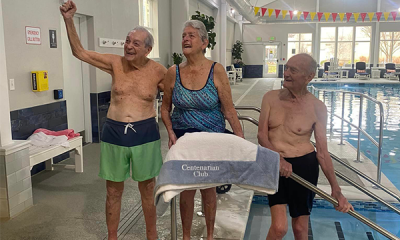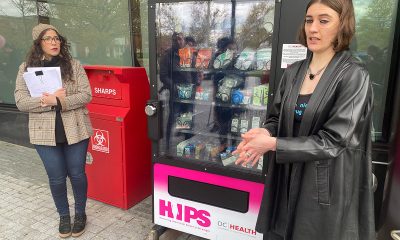Health
Monkeypox cases rise amid calls for equitable treatment & vaccine equity
2,166 cases have been recorded globally
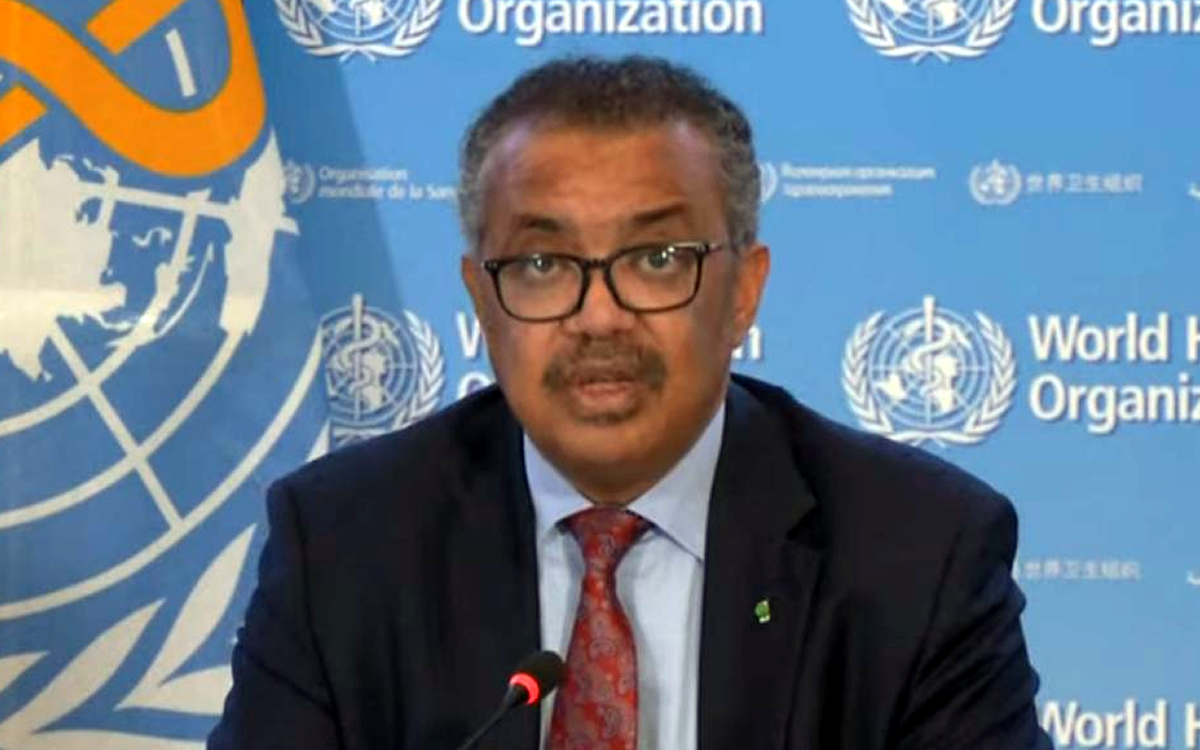
As of June 16th, 2,166 cases of monkeypox have been recorded globally, spanning 37 countries, including places where it is not usually seen. The United States currently has 100 recorded cases of monkeypox — California, New York, and Illinois are hot spots with 21, 17, and 13 cases respectively.
Infections are currently concentrated in Europe: the U.K. has reported 524 cases, and Spain, Germany, Portugal, and France have reported 313,303, 241, and 183 cases respectively. Many of the infections in Europe and the Americas can be traced back to LGBTQ+ events where men gathered — specifically a LGBTQ+ fetish festival in Belgium and a gay pride event in the Canary Islands.
No deaths have been reported, and most monkeypox cases are mild — symptoms include rashes, initial flu-like symptoms, and lesions or sores.
According to the CDC’s latest report, most of the reported cases have occurred in men who have sex with men, but monkeypox can be transmitted to anyone who has had close skin-to-skin contact with an infected person.
Although cases are currently concentrated in gay and bisexual men, Kyle Knight, senior LGBT and health researcher at Human Rights Watch, stressed the importance of managing the outbreak without stigmatizing gay men — or deepening the divide between wealthy and poor countries.
“Whether it’s lessons drawn from HIV, Covid-19, or other public health issues, it is essential to place human rights at the center of the response to infectious disease outbreaks,” Knight said, in a statement.
In an email to the Blade, Dr. Sarah Henn, Chief Health Officer for Whitman-Walker Health, reiterated the need to spread awareness of monkeypox within the LGBTQ+ community while simultaneously eradicating stigma.
“When dealing with an outbreak of any infection it is important to recognize risk factors for infection and specific communities where the infection is being seen. This must be done without stigmatizing those affected. This is the delicate balance that public health authorities are currently trying to walk with the outbreak of monkeypox. There is nothing intrinsic to the monkeypox virus that makes it a sexually transmitted infection, but it is transmitted by close skin to skin contact with the pox lesions, which obviously sexual intimacy involves,” she said.
“People in the queer community need to know what to look for and understand what the potential risks are to their own health. We want to empower the community to help control the outbreak and protect themselves from possible infection without creating stigma or unnecessary fear.”
In addition to its prevalence among gay and bisexual men, monkeypox has a history of unequal treatment options in poorer countries. While some wealthy countries have stockpiles of the smallpox vaccine leftover from when the disease was eradicated in the 1980s, the vaccine — which is effective against monkeypox — is currently unavailable on the entire continent of Africa, where monkeypox is an endemic disease.
Dr. Matshidiso Moeti, World Health Organization, (WHO) regional director for Africa, advocated for a unified global approach that includes vaccine equity.
“We must avoid having two different responses to monkeypox – one for Western countries which are only now experiencing significant transmission and another for Africa,” Moeti said. “We must work together and have joined-up global actions which include Africa’s experience, expertise and needs.”
In countries such as the U.S. and Canada, “ring vaccinations” are being used to prevent outbreaks, in which close contacts of infected people are given a smallpox vaccine within four days of exposure. This approach prevents serious infection and reduces the risk of further spread, but in places where smallpox vaccines are not readily available, it is not an option.
In Chicago, where the state of Illinois’s monkeypox cases are concentrated, officials are also focusing on providing information about prevention and safer sex to gay and bisexual men. With the San Francisco and New York Prides happening next weekend — the country’s two largest — the future of monkeypox outbreaks in the U.S. appears uncertain.
Guidance from the Chicago Department of Public Health encourages people attending “festivals or other summer events” to be mindful of skin-to-skin contact, get tested for monkeypox if exposed, and monitor for symptoms after exposure. Additionally, the CDPH has printed cards with links to the CDC health tips for gay and bisexual men, for organizers to hand out at events.
In Washington D.C., the outbreak is currently smaller — four cases to Chicago’s seven — but officials are still taking preventative measures to diagnose and treat the illness.
“As of today, 4 cases of monkeypox have been diagnosed within the District of Columbia,” Dr. Henn said. “We are working closely with DC Health to screen people for monkeypox who are presenting with rashes that could possibly represent infection and have been coordinating with the city around vaccination of those who have been exposed to a diagnosed case.”
Health
UNAIDS to commemorate Zero Discrimination Day’s 10th anniversary
UN agency urges global action to protect human rights
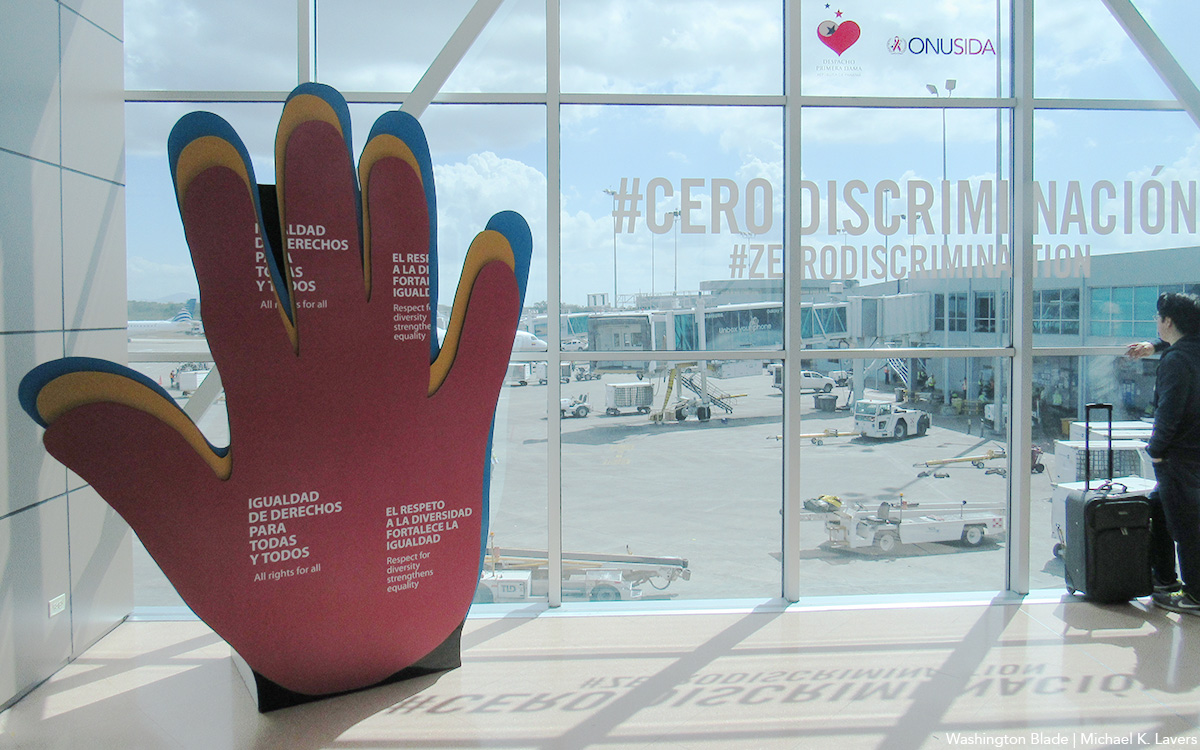
As the world marks the 10th anniversary of Zero Discrimination Day; UNAIDS is sounding the alarm on the increasing threats to human rights, calling for renewed efforts to protect the rights of all individuals as a fundamental step towards ensuring health for everyone.
Established by UNAIDS a decade ago, Zero Discrimination Day aims to promote equality and fairness regardless of gender, age, sexuality, ethnicity or HIV status. The progress achieved over the past years is now in jeopardy, however, due to rising attacks on the rights of women, LGBTQ people and other marginalized communities.
UNAIDS Executive Director Winnie Byanyima emphasized the critical link between protecting human rights and safeguarding public health.
“The attacks on rights are a threat to freedom and democracy and are harmful to health,” she said in a press release. “Stigma and discrimination obstruct HIV prevention, testing, treatment and care and hold back progress towards ending AIDS by 2030. It is only by protecting everyone’s rights that we can protect everyone’s health.”
Despite challenges, there has been notable progress.
At the onset of the AIDS pandemic more than 40 years ago, two-thirds of countries criminalized consensual same-sex sexual relations. They are now decriminalized in two-thirds of countries. An additional 38 countries around the world have pledged to end HIV-related stigma and discrimination, contributing to positive changes that include 50 million more girls attending school compared to 2015.
To sustain and enhance these advancements; UNAIDS urges global support for women’s rights movements, LGBTQ rights, racial justice, economic justice, climate justice and peace initiatives. By standing with communities advocating for their rights, the U.N. aims to reinforce the collective effort towards a more inclusive and equitable world.
Zero Discrimination Day is observed on March 1.
Events and activities that will take place around the world throughout the month will serve as reminders of the essential lesson and call to action: Protecting everyone’s health is synonymous with protecting everyone’s rights.
“Through upholding rights for all, we will be able to achieve the Sustainable Development Goals and secure a safer, fairer, kinder and happier world — for everyone,” said Byanyima.
Health
New CDC report finds transgender women at higher risk for HIV
More than 1,600 people in seven cities surveyed
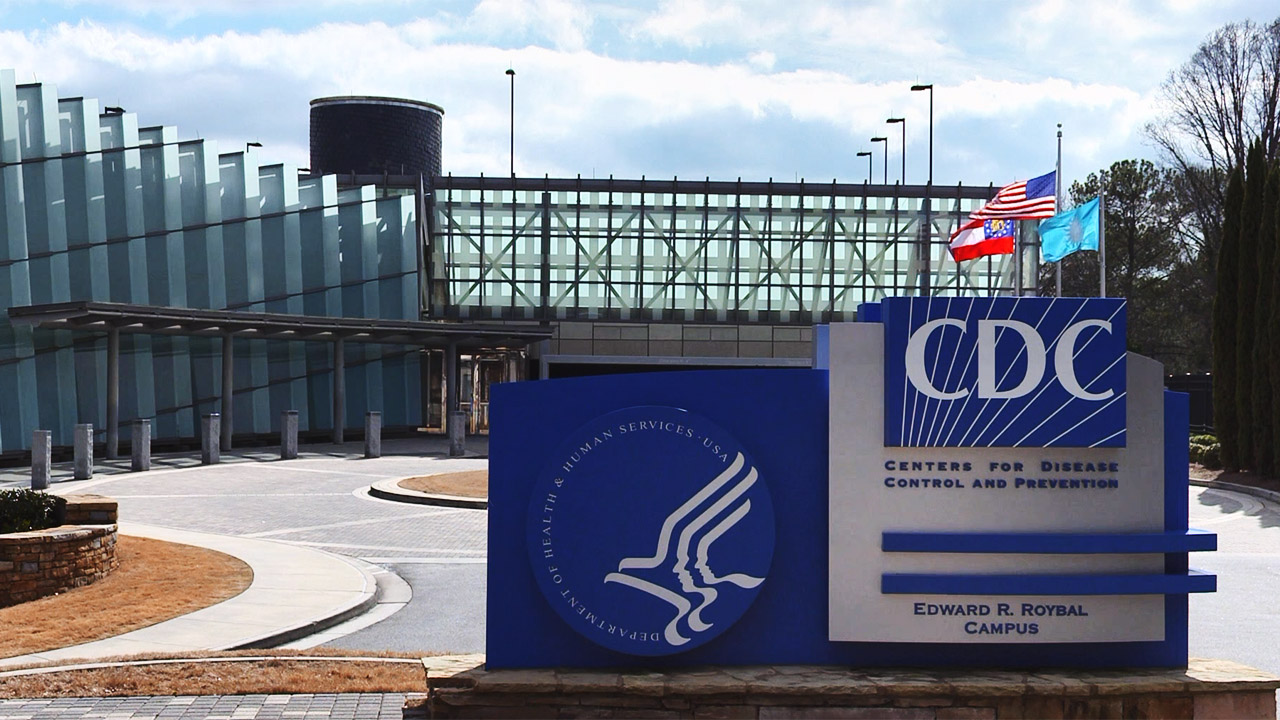
The Centers for Disease Control and Prevention issued a new study report this week that revealed that restricted by employment and housing discrimination and lack of access to needed gender-affirming healthcare for transgender women increasing the risk of contracting HIV.
Researchers reviewed data from a 2019-2020 survey, the National HIV Behavioral Surveillance Among Transgender Women, which found that the demographics of HIV/AIDS have been disproportionally high, especially among Black and Latina trans women, who had experienced employment and housing discrimination coupled with lack of access to gender-affirming healthcare.
The Jan. 25 Morbidity and Mortality Weekly Report was based on data studies of more than 1,600 trans women in seven major urban locales. Participants from Atlanta, Los Angeles, New Orleans, New York, Philadelphia, San Francisco and Seattle were chosen by referrals from people and community-based organizations who knew or were part of the local population of trans women.
The study’s researchers noted: “Employment discrimination occurs at the overlapping nexus of poverty, homelessness, incarceration, health insurance, disability, food insecurity and survival sex work. These issues are interconnected.”
The study stated that trans women’s inability to access quality healthcare, including gender-affirming treatment or access to PrEP, and can expose them to potential incarceration as many turn to “survival sex work” and violence, which increases the risk of contracting HIV.
The study’s author’s pointed out: “When economically marginalized transgender women are refused employment, this refusal cyclically contributes to economic hardships. This analysis …demonstrates the importance of transgender women working and living with dignity and without fear of unfair treatment.”
Health
A Whole New Perspective on Well-Being
The Mather’s team recognizes that everyone’s wellness journey is completely unique to their life experiences and influences.

It’s easy to spot the distinctive, elegant silhouette of The Mather, a Life Plan Community for those 62+ opening this spring in Tysons, Virginia. What is not apparent to the naked eye is The Mather’s unique wellness philosophy, which is literally built into the community.
The Mather’s team recognizes that everyone’s wellness journey is completely unique to their life experiences and influences.
Nature is one of the important factors that contribute to well-being. So The Mather is incorporating biophilic design—a design approach to facilitate access to nature or things that replicate natural patterns. This can include interior spaces with sightlines to a garden, choosing natural wood and stone as interior materials, or incorporating fragrant flowers and plants indoors to spark memories and provide tactile opportunities such as gardening.
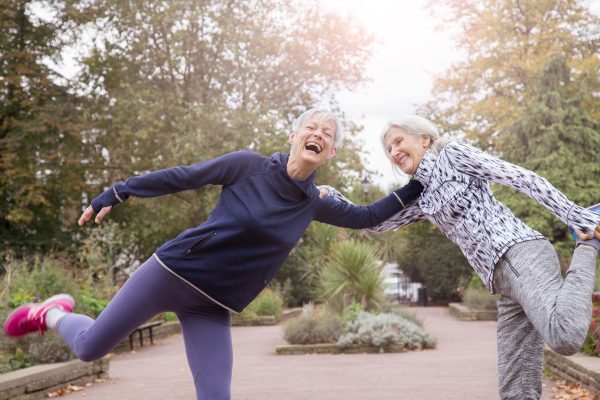
“Providing biophilic design within interior settings connects residents to the natural world,” says Mary Leary, CEO and President of Mather, the organization behind The Mather. “Research shows that a connection to nature provides positive benefits to mental states and overall well-being. At The Mather, biophilic design is the intersection of buildings and programs with nature in an urban setting.”
“The Mather is attracting a diverse group of older adults,” says Mary. “As a result, we aim to incorporate wellness practices from around the world, including Wyda movement theory of the Celtic Druids, which helps people achieve harmony with nature and contentment through mindfulness.” This holistic regenerative approach is similar to Qi Gong and yoga, while born in a different part of the world. Mather Institute has a special focus on mindfulness to support older adults’ practice of present moment awareness, which can lead to increased overall well-being, compassion, and joy.
A very different example of a wellness offering at The Mather is the Gharieni Welnamis spa wave bed, which uses computer-controlled vibrational therapy and audio frequencies to train the brain to relax. “The bed increases mindfulness, concentration, and creativity—all of which support our mission of creating Ways to Age Well,SM” says Mary.
These and other personalized ways to wellness will ensure that residents of The Mather can choose from seemingly countless ways to focus on their well-being. In other words, the sky’s the limit!
-

 District of Columbia3 days ago
District of Columbia3 days agoCatching up with the asexuals and aromantics of D.C.
-

 State Department5 days ago
State Department5 days agoState Department releases annual human rights report
-

 South America3 days ago
South America3 days agoArgentina government dismisses transgender public sector employees
-

 Maine4 days ago
Maine4 days agoMaine governor signs transgender, abortion sanctuary bill into law

